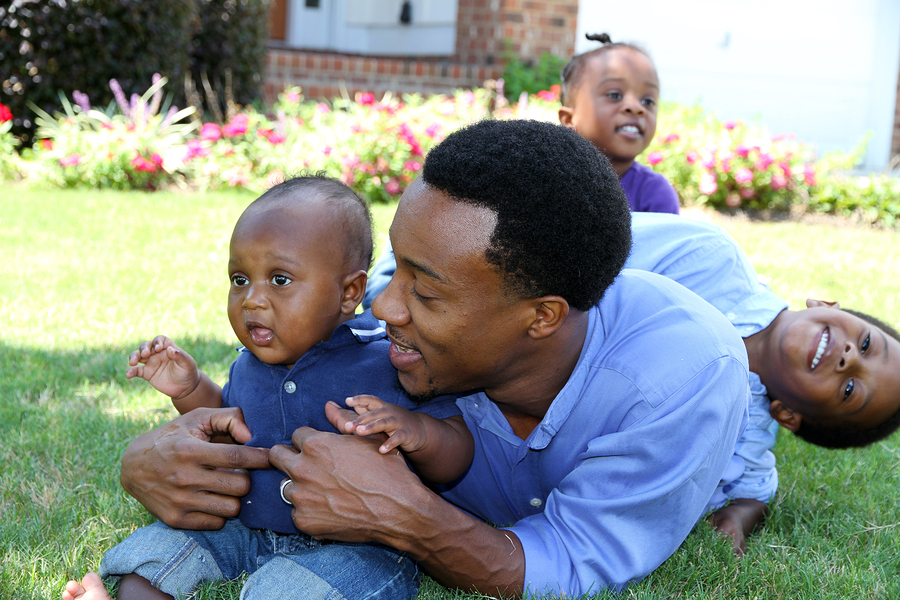Did you hear about all the absent black fathers? Well, it’s a myth….
A federal survey looked at fathers ages 15-44 and their involvement with their children. Some fathers lived with their children and some didn’t. The report looked at the level of involvement dads had with their preschool children (0-4 years) and older children (5-18 years). The survey found that black fathers who live with their children are more involved with them than white and Latino fathers. Also, black fathers who didn’t live with their children are just as involved — or in some cases more involved — with their children than white and Latino dads who didn’t live with their kids.
For preschool kids, “[b]lack fathers (70%) were the most likely to have bathed, dressed, diapered, or helped their children use the toilet every day compared with white (60%) and Hispanic (45%) fathers .” (p.6)
For dads living with their children:
- A larger percentage of black dads (27%) took their older kids to or from activities every day than white dads (20%). (p. 8);
- A larger percentage of black dads (34.9%) read to their children every day in the last four weeks than white (30.2%) or Hispanic (21.9%) dads. (p.16).
- A larger percentage of black dads (41%) had helped their older children with their homework every day in the last four weeks than Hispanic (29%) or white (28%) dads. (p.8).
- A larger percentage of black dads (54.3%) felt that they did “a very good job” as a father than white (43.6%) or Hispanic (43.4%) dads. (p. 21).
For dads who didn’t live with their children:
- A larger percentage of black dads (16.5%) played with their preschool aged children every day in the last four weeks than Hispanic (10%) or white (6.6%) dads. (p.15)
- A smaller percentage of black dads (21%) said that, in the last four weeks, they had not talked with their kids about what happened during the child’s day than Hispanic (63%) or white (29%) fathers. (p.8).
- A larger percentage of black dads (7.8%) read to their children every day in the last four weeks than white (3.2%) dads. (p.16)
- A larger percentage of black dads (25.5%) felt that they did “a very good job” as a father than Hispanic (22.8%) or white (17.4%) dads. (p. 21).
See Jones, Jo, and Mosher, William D., “Fathers’ Involvement With Their Children: United States, 2006-2010,” National Health Statistics Reports, December 20, 2013. (Viewed 4/15/2013)
The “absent black father” myth has been talked about, portrayed in the media, and stigmatized black dads for years. This is a great example of the importance of studies, surveys, and the collection of valid data to debunking stereotypes and myths. It is only through collecting quality data that we can find out the truth about the forces at work in our community. Share the truth. Spread the word!
—Janell Mayo Duncan


